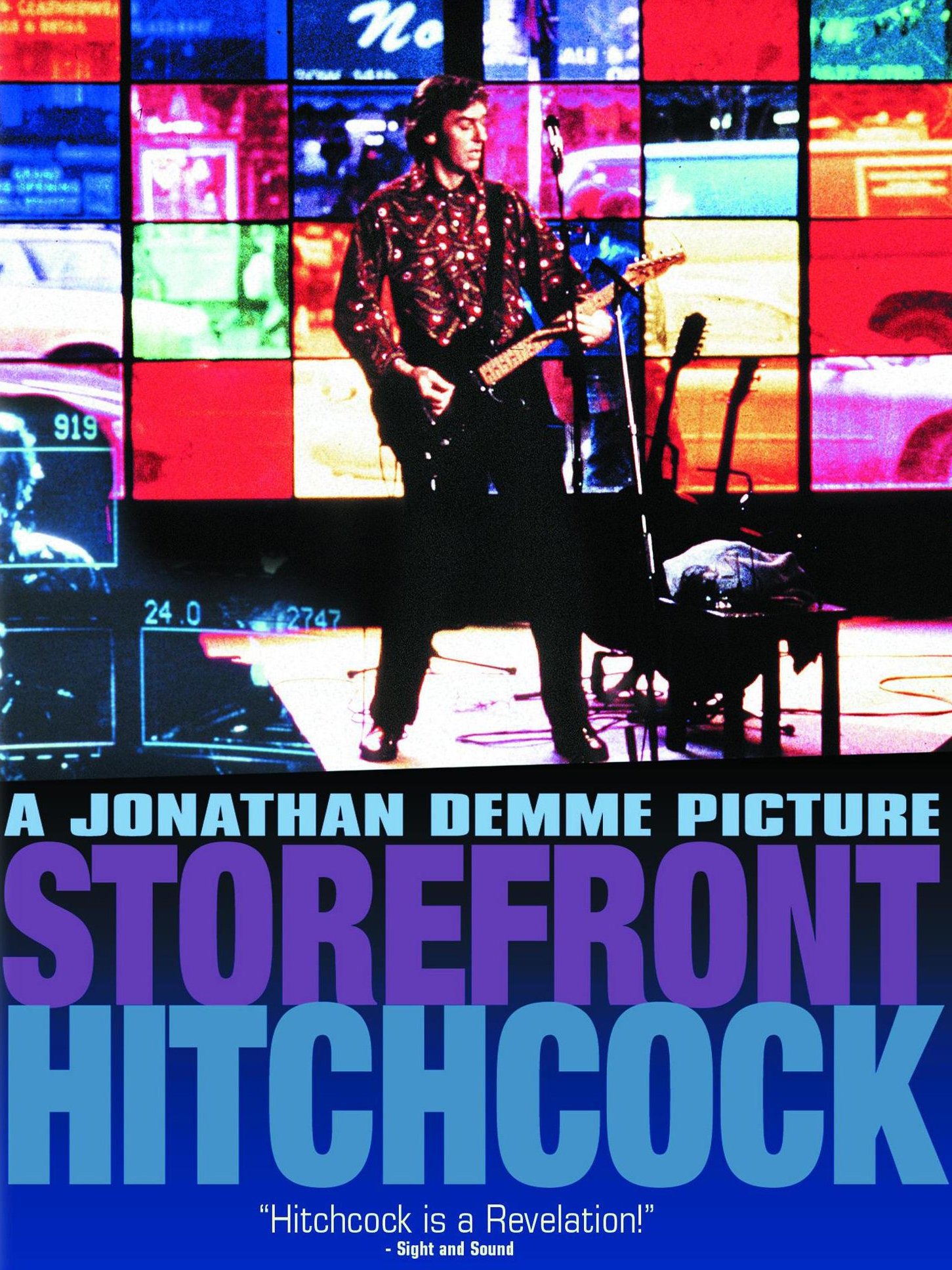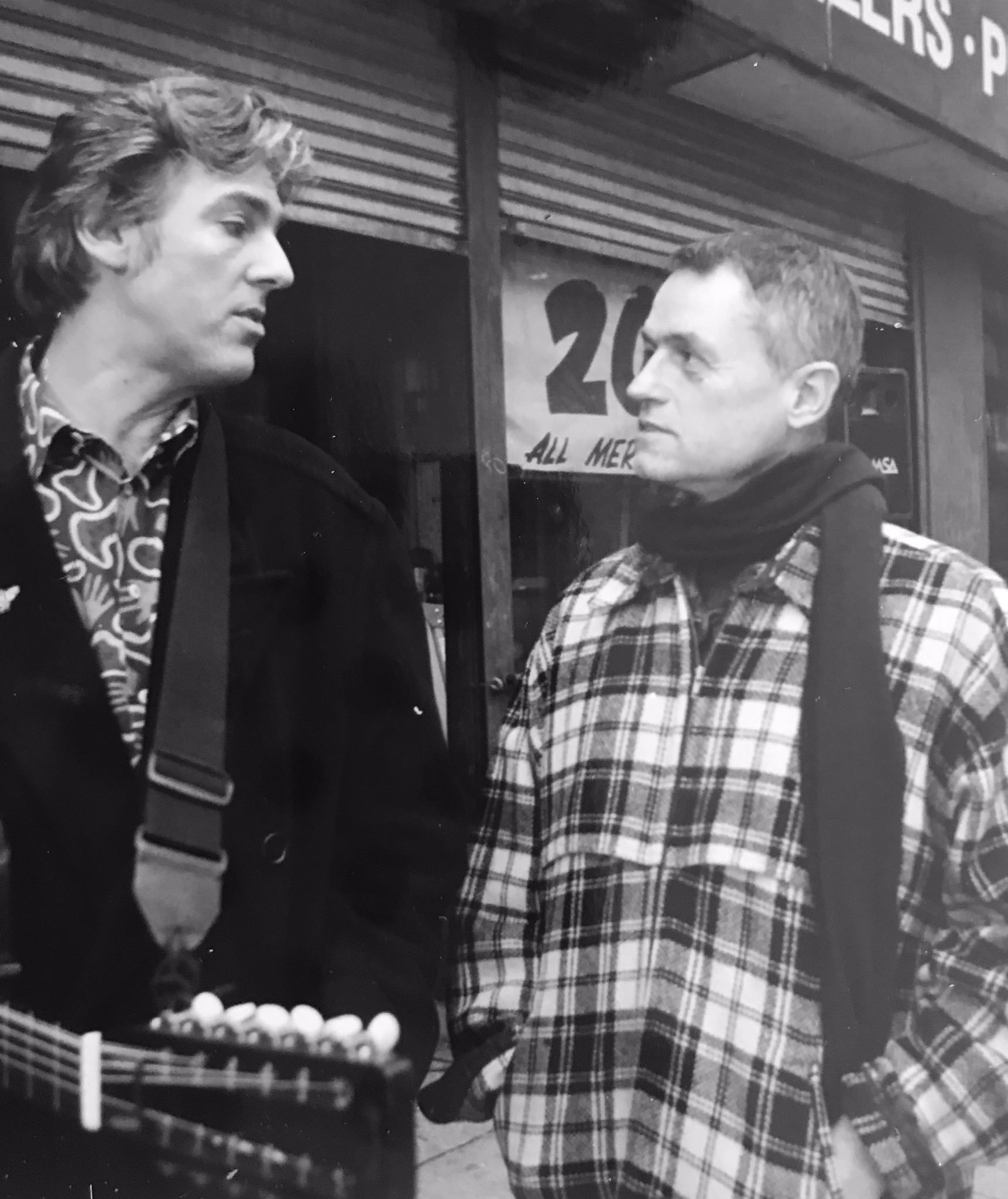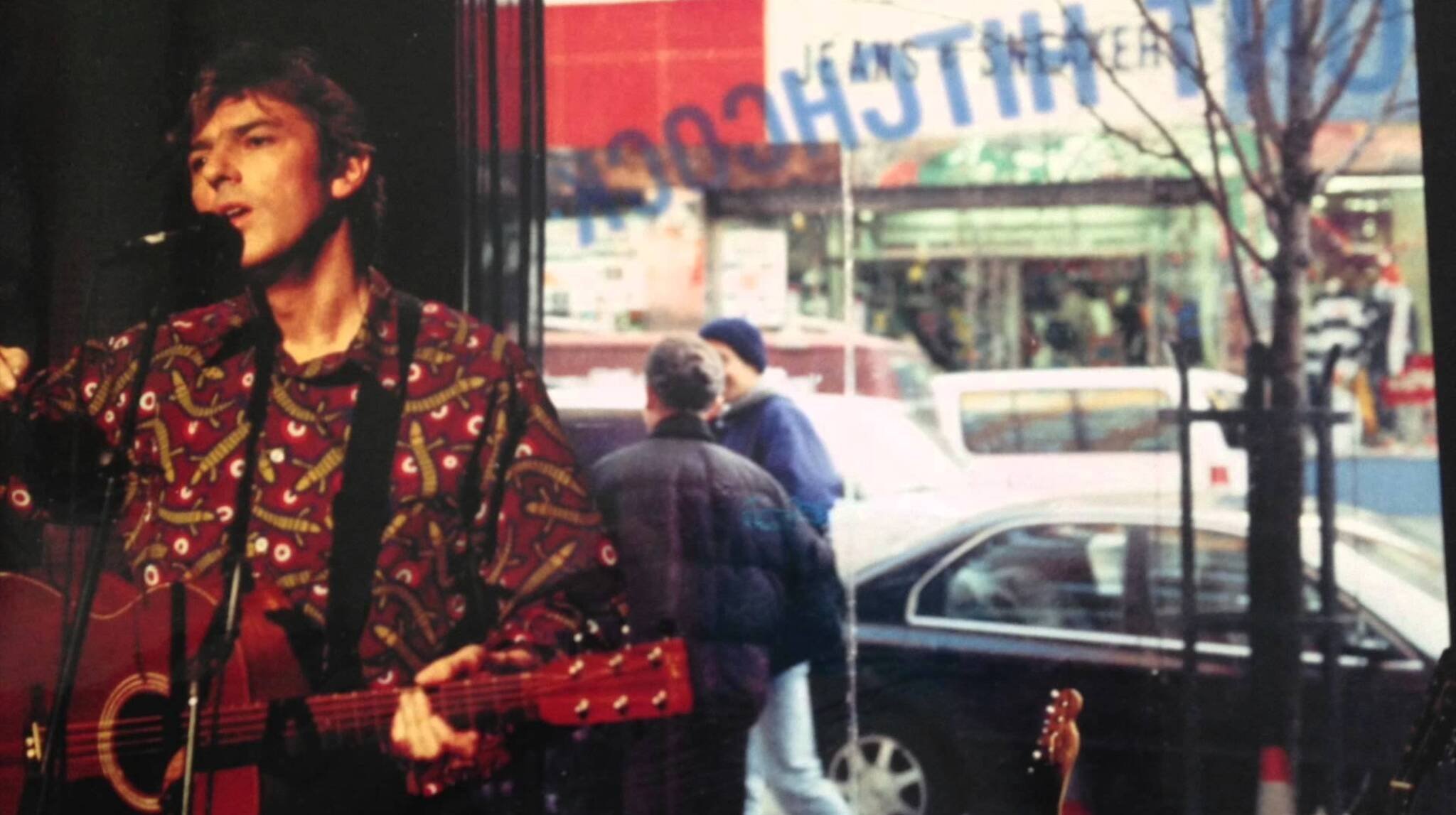Jonathan Demme’s Other Great Concert Film by Matt Olsen
Storefront Hitchcock (1998), directed by Jonathan Demme
The success of any concert film is heavily dependent on whether the audience enjoys the music of the performer. I suppose that it’s possible to admire the technical aspects of the filmmaking alone but if the music doesn’t connect, it’s highly unlikely that one is going to remember it as a great film. Conversely, for those already familiar with and a fan of the artist, the performance can overcome uninspired filmmaking. I only mention this as an upfront admission of bias when discussing Storefront Hitchcock, Jonathan Demme’s concert film of Robyn Hitchcock, whose name is almost always paired with “English” and “eccentric”. To any reader asking themselves, “Robyn who,” rest easy, you’re in the vast majority of the population. Though he’s been musically active since the late 1970s, probably the closest Robyn Hitchcock has ever come to a popular awareness was with his minor college radio single, “Balloon Man”, from 1988. Over a span of about five decades now, he’s managed to maintain a steady and admirably consistent output of music in a psych-folk-college-alt-rock genre with frequent nods to almost every other variety of music including country, prog, and new wave.
In 1984, Jonathan Demme directed what is, let’s say, universally acclaimed as one of the all-time greatest concert films, the Talking Heads’ Stop Making Sense. That film captured an incredibly energetic, up to 9-person band performing at the 2700-seat Pantages Theater in Hollywood while touring on their biggest record to date, Speaking in Tongues, featuring the huge hit single, “Burning Down the House”. All of which is to say, Storefront Hitchcock is a very different beast, altogether. In contrast, Robyn sings and plays guitar, primarily solo in an empty NYC storefront, standing with his back to the shop’s multi-colored window, before a sidewalk of sometimes curious but mostly uninterested pedestrians. The show business pizazz in this concert consists of some subtle light changes, occasional violin and harmonies, a pair of bright orange traffic cones, and the enthusiastic applause of a small, unseen audience. The focus is cemented on the performer and his performance.
Between songs – which, it should definitely be stated are uniformly excellent and delivered with an easy confidence – Hitchcock delivers wonderfully surrealistic monologues that give the appearance of being, at least partially, created in the moment through improvisation / stream of consciousness. These intermissions, a couple of which last as long as some of the songs, add an extra performative element to the concert, faintly recalling another of Demme’s great concert films, Spalding Gray’s one-man show, Swimming to Cambodia.
The casual intimacy of the setting, creates a sense of camaraderie between not only the audience and the performer but, the filmmaker, as well. (Demme later cast Hitchcock in minor roles in his 2004 remake of The Manchurian Candidate and 2008’s Rachel Getting Married, in which Hitchcock performed two original songs.) Throughout, the overwhelming sense is that of friends creating together. This is summed up nicely in a charming letter, excerpted here, that Demme wrote to Robyn, included in the liner notes of the accompanying soundtrack:
Dear Robyn,
You are nice. You bring astonishing dedication, patience, and good cheer to all your endeavors, from creating your music to making pictures to selecting the menu for the day. I admire your writing, your playing, and your singing to the absolute maximum...It was such a bountiful pleasure to meet you, to get to collaborate with you on Storefront Hitchcock, and to just plain hang out with you and yours inside the Hitchcock ecology…I still can’t get over how someone so exceptionally laser-visioned and razor-tongued, so boldly unselfcensored…can also be so alarmingly warm, fine-hearted and cuddly. You are one great giant of a dude and I wish you would reprint this note on the soundtrack album.
Sincerely, Jonathan
Matt Olsen is a largely unemployed part-time writer and even more part-time commercial actor living once again in Seattle after escaping from Los Angeles like Kurt Russell in that movie about the guy who escapes from Los Angeles.



